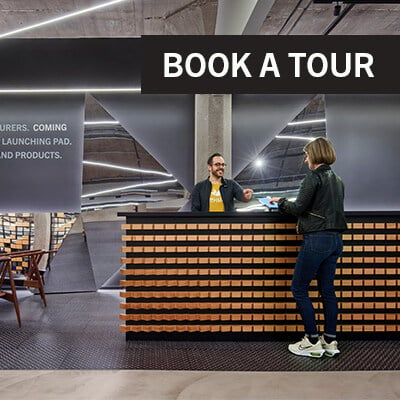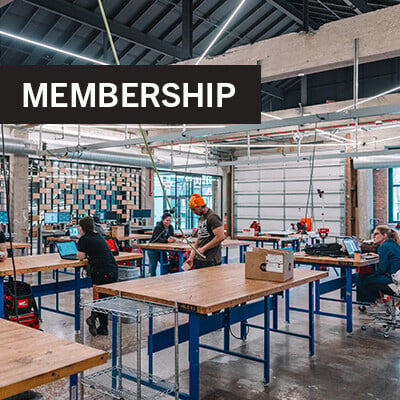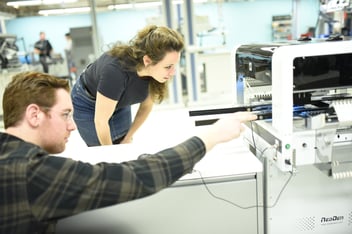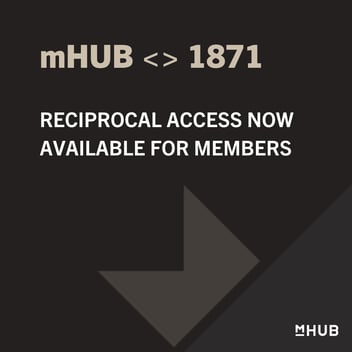As part of the mHUB series "Five Questions with," Kevin Willer, a partner at Chicago Ventures and mHUB board member, shared his insights into the Chicago innovation community and where it's headed.
2. Why do you think Chicago is well-suited to be at the forefront of manufacturing innovation?
The data supports that we have long been the leading region in this country for manufacturing. It’s the nuts and bolts of the Midwest, and Chicago is the capital of the Midwest. So, we should lead in this sector. I think what we’ve seen in the last couple of years is the manufacturing community really coming together around important initiatives like mHUB and beyond, where they’ve been supportive of entrepreneurs, innovators, and middle-market manufacturers doing something new and “disruptive”. It seems simple, but the impact of having a cohesive sector coming through and supporting each other at all stages is massively impactful. It’s also something we’ve seen accelerating in Chicago over the last couple of years helped by places like mHUB bringing people together.
3. What’s the landscape like for investment in Chicago physical product development and manufacturing? How has it changed over last five years?
We need a lot more investment and capital in physical product development and manufacturing in Chicago. There’s simply not enough at this point. We know that. But I don’t worry about it because if you look at the type of venture capital that has flowed into Chicago over the last decade, you see that a lot of that capital is new. A lot of the funds are less than ten years old, even younger. It’s my opinion that capital is kind of a laggard, so you’ve got to have entrepreneurs building interesting stuff first, and you’ve got to have activities, excitement, and bootstrappers that have success without raising a bunch of capital. You have to have this base that mHUB is really building here. The capital will follow, it will catch up as we have early success in this sector.
4. What benefit do places like mHUB have for you in building the Chicago innovation community?
mHUB is the central address for manufacturing, entrepreneurs, makers, and physical product innovation in Chicago and really in the region. I think it is the most critical piece of our ecosystem here. We’ve seen the early returns, but five, ten, twenty years down the road, we’re going to look back on how mHUB has galvanized this community. I don’t think we can understate how important mHUB’s role is in all of this. In addition, I think broader initiatives like the work going at UI Labs and DMDII on Goose Island will play a critical role in our future success.
5. What do you look for when you invest? How does that translate into advice for our physical product entrepreneurs here at mHUB?
We have three main criteria that we look for when investing.
- Founder-market fit: Why does the entrepreneur/innovator know that there’s a problem that needs to be solved? What was the experience? This usually means that they were in an industry where they saw the problem, they know the industry and decided to step out and build a company to solve the problem. We look for people who understand the problems they’re trying to solve.
- Someone who has actually launched a business: They’ve burned the ships. They’re all in, totally committed. We love to see bootstrappers or scrappy entrepreneurs who do a lot with a little capital, who can put the team together and hire key folks early on, and who can fundraise a little money when they need to get going. These are indicators of leadership - getting people to join the company who passionate about solving the problem.
- Product-market fit: We want to see the solution in the market and see customers using it--maybe paying for it—even on a pilot basis—which gives us some semblance that the thesis around the problem is right and their solution works at some base level. It shows that somebody cares about it enough to pay for it and use it. We want to see that early initial attraction, because far too many times entrepreneurs put a product out there and the market doesn’t care about it.
Most of this is the same for physical product entrepreneurs. How do they know the problem they’re solving for? What have they built so far? Maybe they’ve got a prototype that they’re improving upon. Maybe they have a pilot partnership with a bigger company. Investors want to see evidence that there is a real market need for the product and that the business can scale with additional resources.





